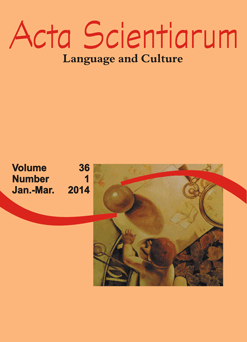<b>“Please do not judge us too harshly!” – The exile’s return to contemporary Somaliain <i>Links</i> by Nuruddin Farah<b>
Resumo
In Links, Nuruddin Farah (2003) portrays a Somali back to his country after more than two decades of exile. The scenario he meets is aSomalia already free from the dictatorship that expulsed him, but still immersed in a bloody civil war between rival militias. Farah’s narrative is largely built around extensive scenes of conversation and confront between this returnee and the Somalis who remained and became involved in the conflict. The current paper demonstrates that the reckoning made possible by these confrontations does not actually mean a leveling of blame, since Farah seems to be very specific about the main reasons for the nation’s current state of destruction.
Downloads
DECLARAÇÃO DE ORIGINALIDADE E DIREITOS AUTORAIS
Declaro que o presente artigo é original, não tendo sido submetido à publicação em qualquer outro periódico nacional ou internacional, quer seja em parte ou em sua totalidade.
Os direitos autorais pertencem exclusivamente aos autores. Os direitos de licenciamento utilizados pelo periódico é a licença Creative Commons Attribution 4.0 (CC BY 4.0): são permitidos o acompartilhamento (cópia e distribuição do material em qualqer meio ou formato) e adaptação (remix, transformação e criação de material a partir do conteúdo assim licenciado para quaisquer fins, inclusive comerciais.
Recomenda-se a leitura desse link para maiores informações sobre o tema: fornecimento de créditos e referências de forma correta, entre outros detalhes cruciais para uso adequado do material licenciado.




















6.png)









